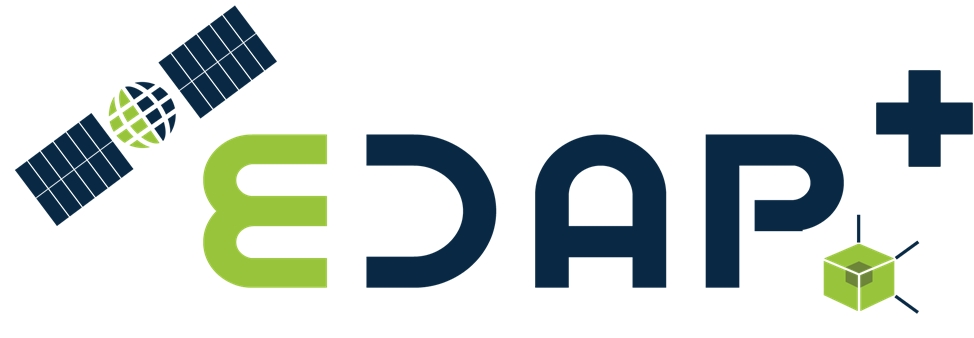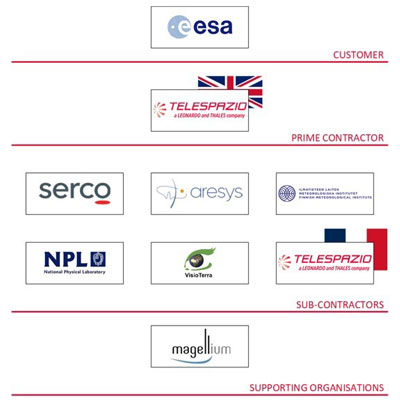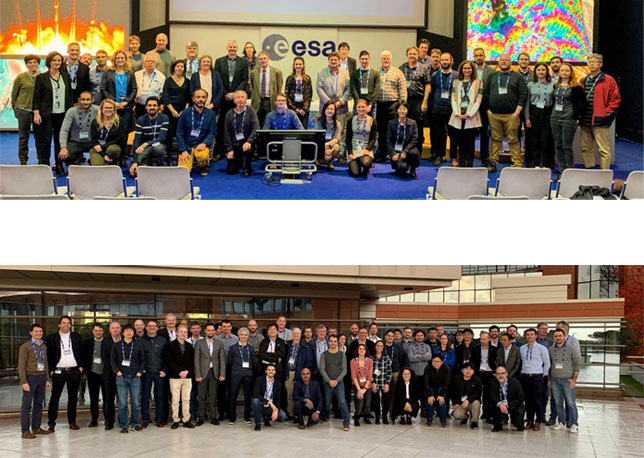- Learn & Discover
- Data Quality for Third Party M...
Data Quality for Third Party Missions
06 Sep 2022

The kick-off meeting for the Earthnet Data Assessment Project (EDAP+) took place in July. EDAP+ will continue to build on the success of the Earthnet Data Assessment Pilot (EDAP) project and aims to assess the quality and suitability of candidate non-ESA Earth observation (EO) missions under consideration for ESA’s Third Party Mission programme.
For more than four decades, ESA’s Earthnet programme has provided the framework to access EO data from non-ESA missions, via ESA’s Third Party mission (TPM) programme.
Complementary to ESA Earth observation missions, the TPM programme allows European and international users free access to a large portfolio of commercial and institutional non-ESA data for scientific research and application development.
The expanding TPM portfolio is crucial for promoting the international use of EO data and TPM data can be accessed by browsing the data collection pages.
However, the rapid emergence of the New Space sector, resulting in a surge of new missions being launched and made operational, has increased the need to address data quality.
Users accessing TPM data from ESA’s Earthnet TPM programme require confidence in the data they use.
The Earthnet Data Assessment Project is responsible for assessing the quality and suitability of candidate TPMs being considered for the programme. This ESA funded project started in 2018 and has recently been extended into its second phase, with EDAP+.
Agenda 2025 supports New Space
According to ESA’s Agenda 2025, in the area of Earth observation, ESA will strongly support New Space involvement and commercialisation.
ESA’s Technical Officer Clément Albinet says: “The continuation of the Earthnet Data Assessment Project activities is based on the success of its predecessor which built bridges between ESA, industry and the scientific community on the topic of the Earth observation data quality. It shows ESA's continuous commitment in supporting the European New Space industry.”
The EDAP technical analysis proposes a standard method and forms a good basis to compare missions. The project has defined a set of 'best practice' guidelines defining a framework for the quality assessments it performs.
These guidelines reflect high-level ideals, serving as an aspiration to New Space providers, while the assessment grading system primarily tests whether a given mission is “fit for purpose” within the context of the mission’s stated performance and application.
The results of the assessment are summarised in a Quality Report, including a data and documentation quality evaluation matrix. It is this maturity matrix that provides the means to readily assess the nature and degree of quality information provided by mission providers. The quality reports are published online by ESA.
The assessment activity requires specific instrument group domain knowledge and familiarity with the data processing algorithms to assess the quality performance of data products. EDAP also places an emphasis on multi-mission studies that may span several instrument domains.
New instrument domains in EDAP+

The EDAP+ service aims to build upon the successful pilot phase with a greater focus on the assessment of European New Space missions. With the growing importance of maritime security and monitoring, a new instrument domain, AIS & RF missions (Automatic Identification System & Radio Frequency), have been added to EDAP+ to complement the existing Optical, Synthetic Aperture Radar (SAR) and Atmospheric domains.
The EDAP+ consortium continues to be headed by Telespazio UK, who led the first phase of EDAP, and includes various clusters of expertise from within the industry.
Alexandra Barker, EO & Climate Marketing and Sales Manager at Telespazio UK says: “The vast growth of Earth observation data has driven the need to improve access to and to understand the trustworthiness of satellite data. To ensure the equivalent growth in the use of EO in downstream applications requires us to provide users with adequate information to assess the suitability of EO data for their applications.
“We are therefore very pleased to be able to draw on our experience and expertise to continue to support ESA to increase confidence in and broaden access to data from New Space mission providers.”
VH-RODA workshop in November
Discussions and dialogue with commercial data providers on the topic of data quality, including recent results from EDAP, shall be in focus at the next VH-RODA workshop (Very High-resolution Radar & Optical Data Assessment) in 2022.
The VH-RODA 2022 workshop will be held at ESA/ESRIN in Frascati (Italy) from 7–10 November. This will be the third edition of the workshop, and will provide an open forum – New Space, commercial and institutional – for discussion around the calibration and validation of very high resolution SAR and optical sensors and data products.
Topics to be covered by the workshop will range from calibration techniques and fiducial reference measurements, to best practices in quality control and innovative instrument concepts for the calibration and validation of future missions.
